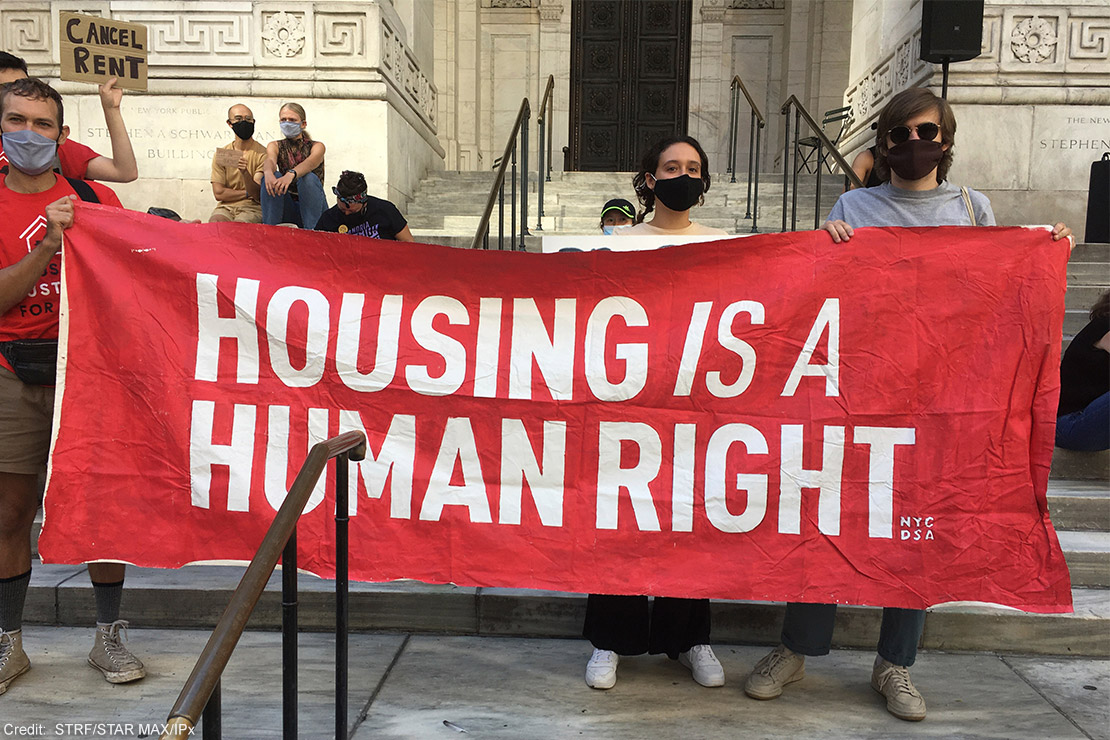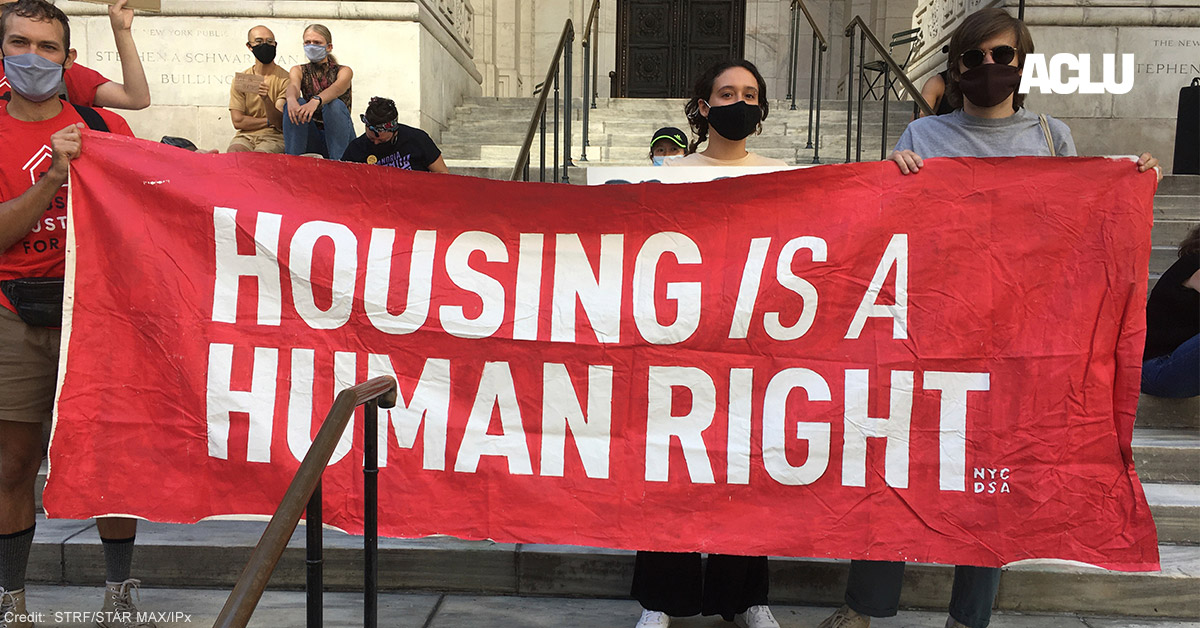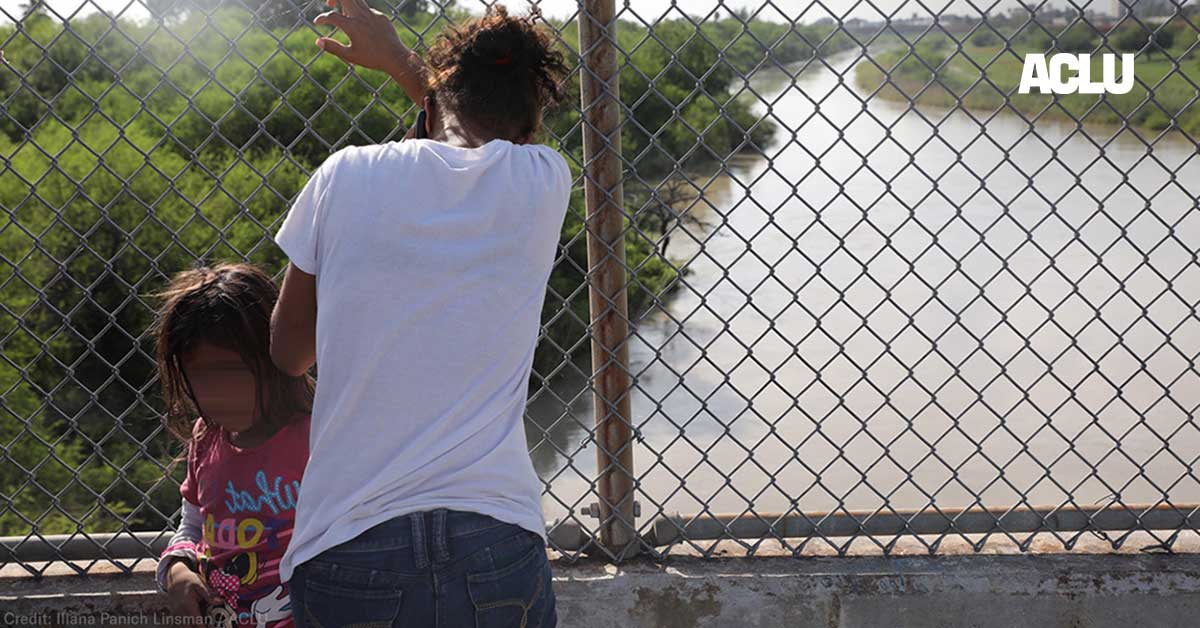Sandra Park, Senior Staff Attorney, ACLU Women's Rights Project
John Pollock, National Coalition for a Civil Right to Counsel
As the COVID-19 pandemic stretches on and worsens, people across the country face the devastation left in its wake. The public health and economic consequences of the pandemic have cost millions of people their jobs and the ability to pay rent — leaving far too many renters facing the added threat of eviction and losing their homes.
The patchwork of responses has yet to slow down the eviction crisis thus far. Congress first responded through the CARES Act by putting a halt on evictions with a moratorium for a fraction of tenants across the country, but this expired in July 2020. In September, the Centers for Disease Control and Prevention adopted another moratorium protecting more renters until the new year. Congress then extended that moratorium for one month. Despite this, heading into January, up to 14 million households were at risk of eviction, and the rental assistance provided by Congress in the stimulus bill will reach some too late and others not at all. And come Jan. 31, 2021, the federal moratorium — as well as many of the remaining local and state moratoria on evictions — is set to expire. This will leave millions of families and communities unprotected from the threat of eviction.
Once these tenant protections end, landlords will not hesitate to pursue mass evictions. Data from the Eviction Lab shows that landlords have filed evictions in droves the moment federal, state, and local moratoria have ended, and in some jurisdictions, eviction filings are actually increasing despite the moratoria that are still in place.
Eviction court proceedings are skewed to favor landlords and evict people from their homes.
Eviction proceedings historically have been unfair and imbalanced. In the courts, the odds are stacked against tenants: 90 percent of landlords are represented by legal counsel in evictions, but fewer than 10 percent of tenants have representation.
This isn’t surprising considering many tenants are facing eviction because of unforeseen circumstances or financial stress that prevents them from being able to afford their rent, let alone counsel. Others lack the ability to go to court due to employment, child care, or transportation restrictions. On top of this, tenants have few options for legal aid and legal services programs, and legal aid has always been underfunded. Any defenses that are available to a tenant are virtually impossible to prove without a lawyer. As a result, tenants default at high rates, and landlords count on this imbalance to file meritless eviction cases. This systematically sets up tenants to fail, forcing them to leave their homes and leaving them to deal with the devastating, long-lasting impacts of eviction.
Black tenants — especially Black women — disproportionately face the threat of eviction.
Due to decades of inequalities in our housing system, communities of color and low-income women feel the impacts of eviction the most — Black women in particular. Black women are more than twice as likely to have evictions filed against them as white people. Less than half of Black and Latinx families own their homes compared to 73 percent of white families. Black and Latinx tenants are also twice as likely as white tenants to report that they have little to no ability to make rent each month. Longstanding systemic income and wealth inequality also put communities of color and women at higher risk of eviction.
The harms of eviction also run deep — having an eviction on your record results in blacklisting, as many landlords will not even consider an applicant with a prior eviction filing, even if they won the case. Eviction records follow people for years, stigmatizing already vulnerable groups and blocking them from housing opportunities.
Securing tenants’ right to counsel is key to fighting mass evictions.
Securing tenants’ right to counsel is one way federal and state governments can take action to stop this impending mass wave of evictions and keep people in their homes during the pandemic and beyond. Right to counsel measures ensure that tenants who are facing the complex process of an eviction proceeding are guaranteed legal representation — giving tenants a fair chance to access legal protections and stay in their homes. Additionally, tenant attorneys can help tenants apply for rental assistance, ensure that courts do not proceed while such applications are pending, and address situations where landlords refuse to accept the rental assistance.
Right to counsel measures for tenants in eviction proceedings have been enacted in seven cities to date: New York City, San Francisco, Newark, N.J., Cleveland, Philadelphia, Boulder, Colo. and Baltimore. And these measures actually work. 86 percent of tenants who had representation as a result of New York City’s right to counsel legislation were able to remain in their homes. In San Francisco, the eviction filing rate decreased by 10 percent between 2018 and 2019, and of those receiving full representation, 67 percent stayed in their homes. Providing a right to counsel allows people and families to keep their homes and communities, and in the time of a pandemic, promotes public health.
Federal and state governments need to take action to protect tenants from mass evictions.
With the federal eviction moratorium set to end on Jan. 31 and no additional federal emergency rent relief in sight, it is paramount for Congress, states, and cities to act — and supporting right to counsel measures must be key to addressing mass evictions. The emergency package that passed Congress and was signed into law on Dec. 28 fell far short, extending the moratorium only until the end of January, providing a fraction of what is needed in rent relief, and allocating only $20 million in total for tenant representation while failing to explicitly address right to counsel. The ACLU and National Coalition for a Civil Right to Counsel call on the federal government to provide funding support for cities and states that implement a right to counsel for tenants in eviction proceedings, as well as to implement a fully effective moratorium on evictions and additional rental assistance for tenants.
We need meaningful action to stop mass evictions during the pandemic and beyond. All people — regardless of their circumstances or background — should have access to safe and stable housing.
https://www.aclu.org/news/racial-justice/tenants-right-to-counsel-is-critical-to-fight-mass-evictions-and-advance-race-equity-during-the-pandemic-and-beyond
Millions of tenants face the threat of eviction in the first few months of 2021 alone. Securing tenants’ right to counsel is key to fighting this looming crisis.




